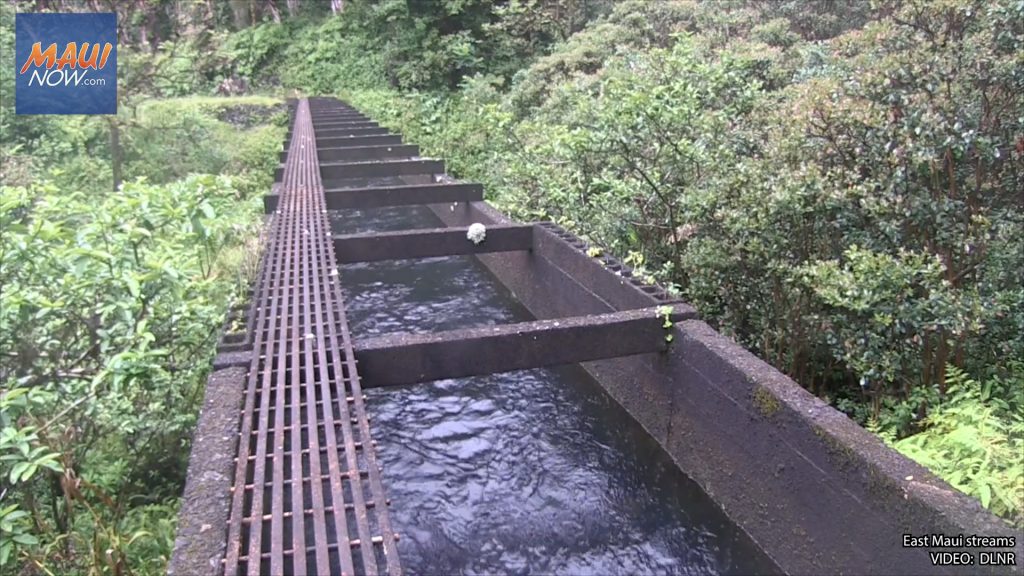Maui County Council pursuing East Maui water leases

The Maui County Council unanimously adopted a resolution in early January to pursue the long-term East Maui water leases pending before the Hawaiʻi state Board of Land and Natural Resources.
After the resolution was passed, Council Chair Alice L. Lee wrote a letter to the board asserting Maui County would be an ideal lessee, providing greater public benefits than a private lessee.
Councilmember Shane Sinenci, who introduced resolution 22-4, FD1, said in a news release that Department of Land and Natural Resources’ special projects coordinator Ian Horikawa told the council the County of Maui can acquire the leases through an intergovernmental agreement initiated by the county administration.
“When a private, for-profit entity acquires the right to water, the water becomes an economic commodity,” Sinenci said. “By acquiring these leases, the county has the opportunity to manage the water source as a public trust, assure equitable rates for all farmers and further the county’s and state’s goals of food security and sustainable local agriculture.”
Sinenci said there’s widespread support for the proposal.
In a letter to Maui County Mayor Michael Victorino and the council on Jan. 6, Dean Frampton, chair of the county Board of Water Supply, said the board’s temporary investigative group, or TIG, touted the county receiving East Maui water leases three years ago.
Frampton said the board, by unanimous vote, is now “encouraging the County of Maui to pursue the feasibility of acquiring the leases of the Nāhiku, Ke‘anae, Honomanū and Huelo license areas through an intergovernmental agreement with the Department of Land and Natural Resources (DLNR) as recommended in our 2019 TIG Report.”
The 85-page TIG report can be found at https://tinyurl.com/TIGreport.
Hawaiian Homes Commission Chair William J. Ailā, Jr. also has stated support for the county’s acquisition of the leases, citing Maui County’s obligations as a municipal government to provide water to the Department of Hawaiian Home Lands.
In a letter to the mayor, then-state-Sen. Kai Kahele said: “It is in the best interest of the County of Maui to secure its own long-term water lease with the State of Hawaiʻi and to free itself from the dependency on private, commercial, third-party operators who are not duty bound, as we are, to uphold the state’s public trust obligation to conserve and protect Hawai’i’s natural resources for the benefit of present and future generations.”
Kahele, who chaired the state senate’s Committee on Water and Land, is now the U.S. representative for Hawaiʻi’s 2nd Congressional District, which includes Maui County.
Sinenci also is pursuing legislation to create a water authority with water-system-management expertise to efficiently and equitably manage water systems acquired by the county.









